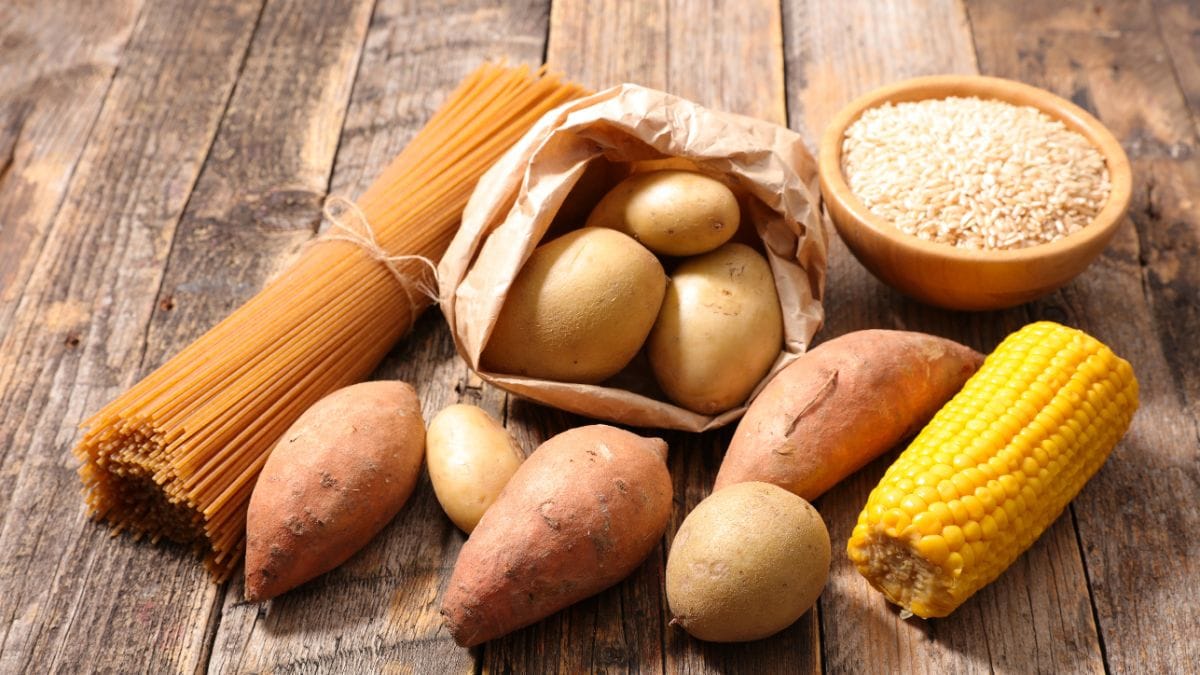● Short Answer: No, diabetics should not avoid all carbohydrates but should focus on choosing the right types and amounts.
Introduction
Picture this: you’ve just been diagnosed with diabetes, and suddenly everyone around you starts whispering about cutting out carbs completely.
This confusion stems from the widespread belief that carbohydrates are the enemy of blood sugar control, leading many diabetics to wonder if they should eliminate them entirely from their diet.
But here’s the truth that might surprise you: complete carbohydrate elimination isn’t just unnecessary for most diabetics—it can actually be counterproductive and potentially harmful.
What Happens When Diabetics Avoid All Carbs?
When you eliminate all carbohydrates from your diet, your body enters a state called ketosis, where it burns fat for fuel instead of glucose.
While this might sound appealing for blood sugar control, it can lead to several complications for diabetics, including increased risk of diabetic ketoacidosis in type 1 diabetics.
Your brain, which typically relies on glucose for optimal function, may experience cognitive fog and fatigue during the initial adaptation period.
Additionally, completely avoiding carbs can make it challenging to get essential nutrients found in fruits, vegetables, and whole grains, potentially leading to deficiencies in fiber, vitamins, and minerals.
In my opinion, this extreme approach often creates an unsustainable relationship with food that can lead to psychological stress and social isolation around meals.
✪ Note: Type 1 diabetics should never attempt zero-carb diets without strict medical supervision due to ketoacidosis risks.
Which Carbohydrates Should Diabetics Actually Avoid?
The real culprits aren’t all carbohydrates—they’re the refined and processed carbs that cause rapid blood sugar spikes.
White bread, pastries, sugary drinks, and candy should be your primary targets for elimination because they contain simple sugars that flood your bloodstream quickly.
Processed foods with added sugars, including many breakfast cereals, flavored yogurts, and packaged snacks, can cause unpredictable glucose fluctuations that make diabetes management difficult.
Even seemingly healthy options like fruit juices and dried fruits concentrate natural sugars without the fiber that would normally slow absorption.
Instead of avoiding all carbs, focus on eliminating foods with a glycemic index above 70 and those containing more than 15 grams of added sugar per serving.
✪ Pro Tip: Read nutrition labels and avoid foods where sugar appears in the first three ingredients.
How Many Carbs Should Diabetics Eat Daily?
Most diabetics thrive on 45-60 grams of carbohydrates per meal, totaling 135-180 grams daily, depending on their activity level and medication regimen.
However, some individuals may benefit from a lower intake of 20-50 grams per day, particularly those with severe insulin resistance or those following supervised ketogenic protocols.
The key is finding your personal carbohydrate tolerance by monitoring blood glucose responses to different amounts and types of carbs.
Start by testing your blood sugar before eating, then again 1-2 hours after meals to identify how many carbs keep your levels within target ranges.
In my opinion, the most successful approach involves consistent carb timing—eating similar amounts at the same times daily to help your body and medication work predictably.
✪ Fun Fact: Your carb tolerance can change with weight loss, exercise habits, and stress levels, requiring periodic adjustments.
What Are The Best Carbs For Blood Sugar Control?
Non-starchy vegetables like broccoli, spinach, and cauliflower provide essential nutrients with minimal impact on blood glucose levels.
Legumes such as lentils, chickpeas, and black beans offer protein and fiber that slow sugar absorption while providing steady energy.
Whole grains like steel-cut oats, quinoa, and brown rice contain fiber that helps prevent blood sugar spikes compared to their refined counterparts.
Berries, particularly blueberries and strawberries, provide antioxidants and natural sweetness with lower sugar content than tropical fruits.
Sweet potatoes and winter squash offer complex carbohydrates with beta-carotene and fiber that support gradual glucose release.
✪ Pro Tip: Pair carbs with protein or healthy fats to further slow glucose absorption and improve satiety.
How To Time Carbs For Optimal Blood Sugar?
Eating your largest carbohydrate portion at breakfast and lunch allows your body to use the glucose for energy when insulin sensitivity is typically higher.
Avoid consuming significant carbs within 3 hours of bedtime, as your body’s ability to process glucose decreases in the evening.
If you exercise regularly, timing carbs 30-60 minutes before workouts can help fuel your muscles while preventing exercise-induced blood sugar drops.
For those on insulin, coordinate your carb intake with your injection timing to match peak insulin action with glucose absorption.
Consider eating smaller, more frequent carb portions throughout the day rather than large amounts at once to maintain steady glucose levels and avoid overwhelming your insulin response.
✪ Note: Individual insulin patterns vary, so work with your healthcare provider to optimize your personal timing strategy.
Wrapping Up
Diabetics should focus on choosing smart carbohydrates rather than avoiding them completely, as the right types and amounts can actually support better blood sugar control and overall health.
What’s your biggest challenge with managing carbs in your diabetes diet—I’d love to hear your experience and help you find practical solutions that work for your lifestyle.
References
At NutritionCrown, we use quality and credible sources to ensure our content is accurate and trustworthy. Below are the sources referenced in creating this article:
- American Diabetes Association: Understanding Carbs
- CDC: Carb Counting to Manage Blood Sugar
- American Diabetes Association: Carb Counting and Diabetes
- Healthline: Diabetes Carbs Per Day
- PMC: Low Carbohydrate Diets and Type 2 Diabetes
- Diabetes UK: Carbohydrates and Diabetes





